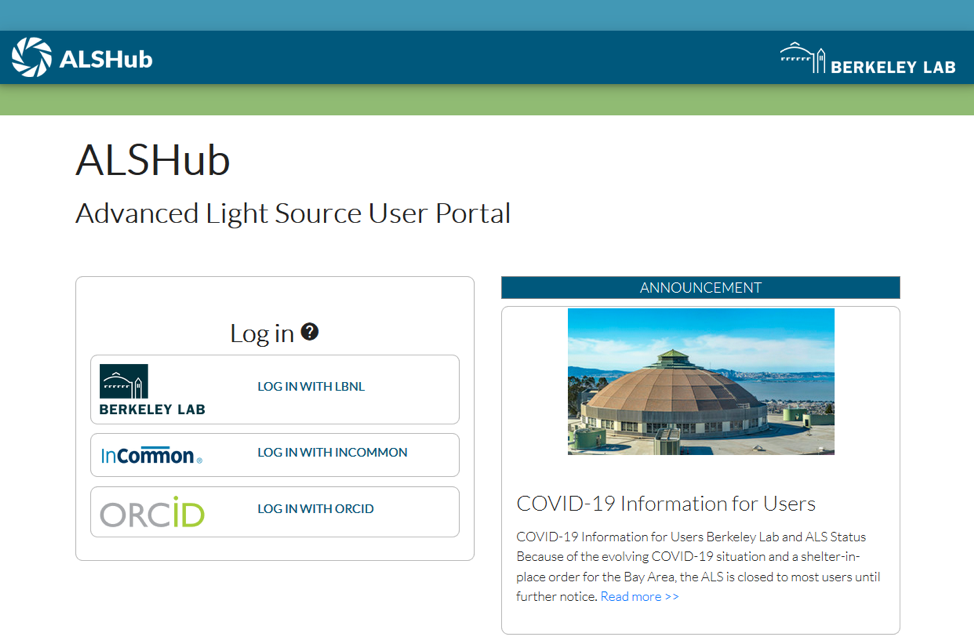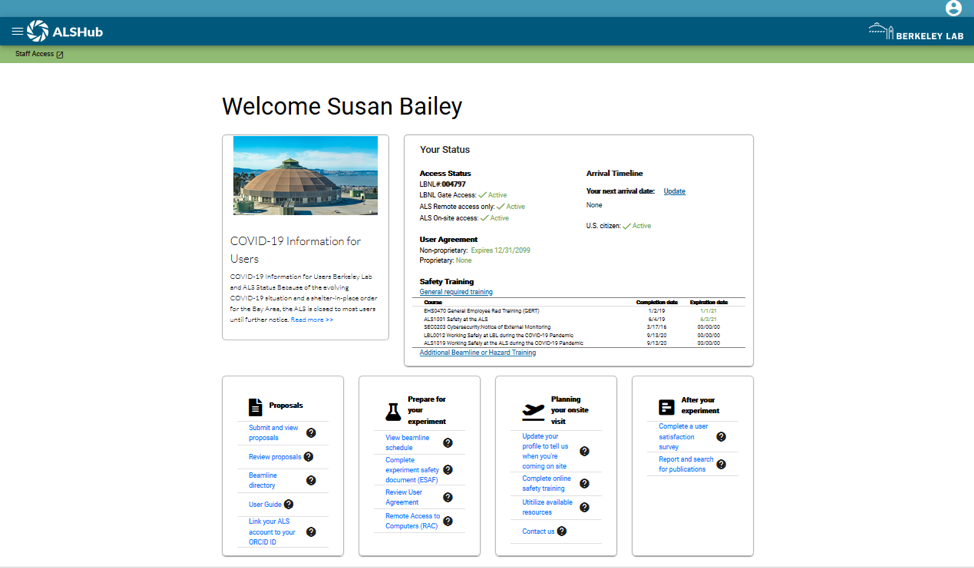by Sue Bailey, Mel Sibony, and Andi Jones
The Advanced Light Source (ALS) will replace the current ALSHub before the holidays. One significant change is the authentication process, which will now provide three options:
- Berkeley Lab (LDAP) sign in.
- InCommon: Users who work at an organization that belongs to the InCommon access management federation will now be able to sign in using their home organization credentials. The InCommon Federation includes around 600 educational entities.
- ORCiD: For users from organizations that do not belong to InCommon, the authentication will be via your ORCiD account. Users without an ORCiD account will need to create one.
If none of these authentication options work for you, please contact the User Office to discuss other options.
It continues to be critical for the ALS to know when users are arriving, preferably with two weeks’ notice. This is becoming more important as users now need to be processed and badged by LBNL officials, not the ALS user office. ALSHub is set up to collect most required details before each visit.
The new ALSHub will provide access to all the systems you currently access. The following, newer options have also been implemented or being developed:
- ALSHub sign in will now work on a smartphone (although many features such as ESAF will continue to require a larger mobile device)
- Remote access to some beamline computers – Beamline 8.3.2 is the first
- View your status, including training, for ALS access
Figures 1 and 2 show views of the new ALSHub sign-in web page and the Welcome page after signing in. We will be sending an email once this new version is up and running. We hope you enjoy exploring the site. Be sure to provide feedback to help us improve the site.


Principle Investigators
Moving forward, PIs of groups using the ALS will need to have an established ALSHub account before a proposal is submitted. The person filling out the proposal form will no longer be allowed to identify the proposal PI by entering their email, but instead will have to choose from a list of known PIs. This enables us to authenticate and assign data ownership to group PIs.
Link your ORCiD account to your ALS account
Users will receive emails reminding them to link their ALS account to their ORCiD account. This option is available in the existing, and the new, ALSHub.
Although we have been gradually moving in this direction (e.g., requiring ORCiD validation for new ALSHub users), we have accelerated universal adoption of ORCiD due to the recent COVID situation, which has greatly increased the numbers of remote users. Many beamlines provide access to data by allowing on-site users to connect their laptops and memory devices to our local machines, or by similar manual transfer methods. With many of our users becoming remote users for the first time, we need to establish secure remote access protocols that ensure correctly authorized access to data that are controlled by a designated PI. We want to develop systems that are usable during the COVID period, and also are the first step to a future data management system planned on some beamlines. Such a system needs to be flexible and easy to use, and for that we need group PIs (data owners) to be authenticated and identified in our systems. Use of a common identifier like ORCiD will help us ensure that only your group can have access to your data.
As ORCiD is becoming increasingly adopted by the research community, we see further benefits. When you identify yourself to a journal with your ORCiD iD, it can make it much easier for us to track your ALS publications, thereby helping us document the ALS’s impact, which is a key requirement to ensure that our programs will remain strong. If you review proposals for us, providing us your ORCiD will accrue credit for your service, which is automatically documented for you in your ORCiD account.